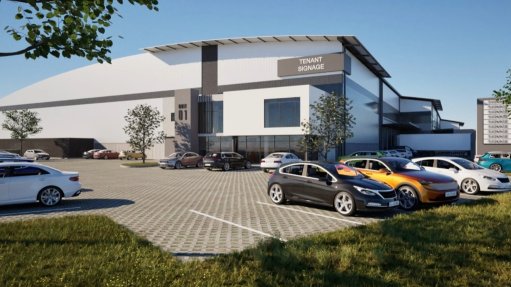Why the future need not be so bleak
Sometimes environmental dystopia can obscure progress. As the global climate negotiation process moves along, it is interesting to see how the climate change and fossil fuel debate is beginning to reshape our world. Change may happen faster and more disruptively than we may think. Here is a sample of a few pointers to how the world is moving into the future.
Firstly, oil prices may be on a permanent downward trend for a number of reasons. In the major cities of the world – it does not have to be just New York or London; it can also be Nairobi or Lagos – technology is shaping our overreliance on oil. In densely populated cities, sharing a car may be more cost effective than buying one. Uber or uber equivalents are showing us how a networked transport system is lowering our demand for owned cars. And the more the quality of this experience improves, the more it will become ‘the way of doing things’.
Cars are also becoming lighter and smaller; thus, they will use less fuel. In fact, the less the quantity of steel that is used to make cars, the less the energy we will use. Improvements in the internal combustion engine (ICE) and in electric vehicles (EVs), as well as hybrid growth, will also reduce demand for fossil fuels. EV entrepreneurs are not waiting for governments ‘to do things for them’, with many private entrepreneurs not only developing the cars but also establishing recharging networks for the cars. We are entering a world of peak demand rather than peak oil. ICEs have been shown to have become 20% more efficient in the past 35 years and are expected to reach 40% efficiency in the next two decades. Switching from oil-based products to organic products like bioplastics offers further promise and will impact on oil use and demand in the future.
Secondly, changes in weather patterns are driving innovation in the agriculture and food sectors. We are moving from an era of consistency in terms of weather patterns to uncertainty and unpredictability. The introduction of new technologies to deal with some of these challenges, such as cover farming, is playing an increasingly big role in farming. In South Africa, there has been an explosion in cover farming to deal with variability and disease and to improve yields. Agriculture will become more precise with regard to water use, inputs and genetic design.
Vertical farming and new ways of under- taking agricultural production will grow in size. Pilot models around the world already exist and show great promise. These forms of high-tech farming involve automation, sophisticated sensing devices, information capture and nutrient input precision. Agricultural products will be of a better quality and taste as a result of these types of farming. All this will enable us to use less energy and water and rely less on weather variability to produce what we need.
But it does not stop there. We waste a lot of food in the food production cycle, with the figures varying from 40% to 60%. Much innovation is required with respect to how we can reduce food waste. In some cities, information technology innovators have already come up with applications to deal with food waste problems in restaurants and supermarkets. People are networked with outlets that allow them to buy food that is normally thrown away. This food is bought at a discount from supermarkets and restaurants simply by connecting people virtually to where the food is and ensuring suppliers can exchange or transact with consumers before they throw the food away. In this way, food waste will be considerably reduced over time. These are all profound shifts attributable new technology. The co-benefit of these innovations is that food does not decompose; thus, it does not emit methane and contribute to global warming.
Water is our next big challenge at several levels: optimising the capture of runoff and, in the case of Africa, dealing with high evapotranspiration, the change in management practices and dealing with ways to extract potable water from waste water and nonconventional water sources. There are three challenges for water: How do we extract more from nature in the face of climate change? How best do we manage the water that is captured from nature by changing consumer behaviour and introducing better technologies? What are the ways in which we can extract water from unconventional sources. Globally, water, as a resource, is undervalued and underpriced. Its true value in the economic system is not reflected because it is a political issue. In some countries, this makes sense, given the developmental needs that these countries face.
Yet there is a paradox when it comes to pricing and the use of water from public utilities, given how much people spend on bottled water. You have to blame Perrier and Jane Fonda for this problem. Perrier sold his natural bubbly water idea before others climbed in to milk this market – in an experi- mental $5-million brand campaign in the US just when Jane Fonda’s aerobics craze took over around 1977. The gambit worked. Perrier’s sales went from 2.5-million bottles to 75-million bottles between 1975 and 1978. This was driven by the bottled water’s being sold as the finest health product from France and the status symbol it gave to aerobic fanatics. The pricing of water will go some way to not only shifting behaviour but also stimulating shifts in technology and adoption of this technology.
Finally, one can also see major shifts in distributed energy. Watch out for unexpected things to emerge in this sector too. More on that will be said in a future instalment of this column.
Article Enquiry
Email Article
Save Article
Feedback
To advertise email advertising@creamermedia.co.za or click here
Announcements
What's On
Subscribe to improve your user experience...
Option 1 (equivalent of R125 a month):
Receive a weekly copy of Creamer Media's Engineering News & Mining Weekly magazine
(print copy for those in South Africa and e-magazine for those outside of South Africa)
Receive daily email newsletters
Access to full search results
Access archive of magazine back copies
Access to Projects in Progress
Access to ONE Research Report of your choice in PDF format
Option 2 (equivalent of R375 a month):
All benefits from Option 1
PLUS
Access to Creamer Media's Research Channel Africa for ALL Research Reports, in PDF format, on various industrial and mining sectors
including Electricity; Water; Energy Transition; Hydrogen; Roads, Rail and Ports; Coal; Gold; Platinum; Battery Metals; etc.
Already a subscriber?
Forgotten your password?
Receive weekly copy of Creamer Media's Engineering News & Mining Weekly magazine (print copy for those in South Africa and e-magazine for those outside of South Africa)
➕
Recieve daily email newsletters
➕
Access to full search results
➕
Access archive of magazine back copies
➕
Access to Projects in Progress
➕
Access to ONE Research Report of your choice in PDF format
RESEARCH CHANNEL AFRICA
R4500 (equivalent of R375 a month)
SUBSCRIBEAll benefits from Option 1
➕
Access to Creamer Media's Research Channel Africa for ALL Research Reports on various industrial and mining sectors, in PDF format, including on:
Electricity
➕
Water
➕
Energy Transition
➕
Hydrogen
➕
Roads, Rail and Ports
➕
Coal
➕
Gold
➕
Platinum
➕
Battery Metals
➕
etc.
Receive all benefits from Option 1 or Option 2 delivered to numerous people at your company
➕
Multiple User names and Passwords for simultaneous log-ins
➕
Intranet integration access to all in your organisation

















